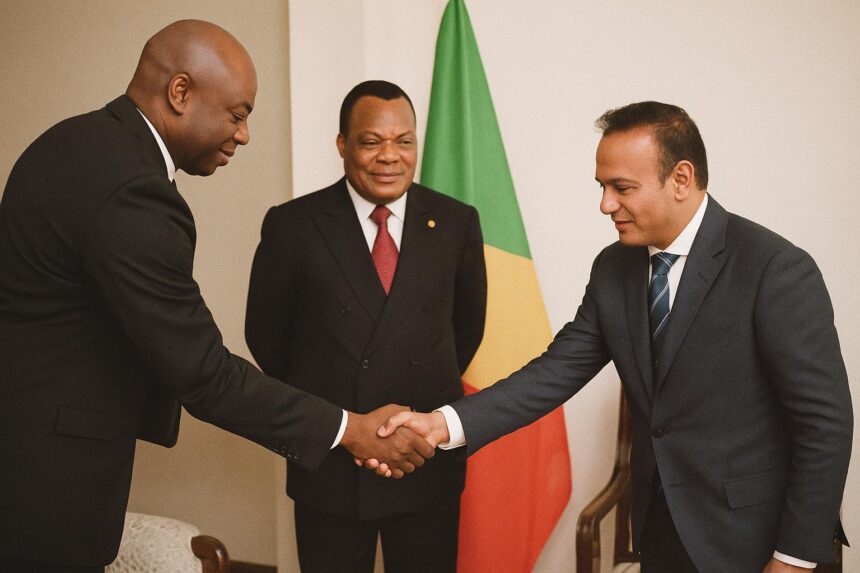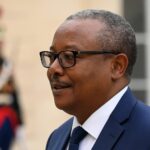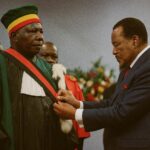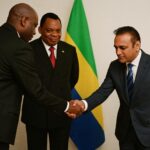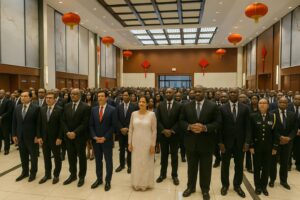Continental Stakes in the Next UNESCO Leadership
Few multilateral appointments generate as much discreet rivalry as the selection of UNESCO’s Director-General. Beyond the cultural symbolism, the office shapes global education, digital governance and heritage funding—sectors where Africa often seeks a louder voice. Brazzaville’s decision to champion Firmin Édouard Matoko, a veteran of UNESCO headquarters and former Assistant Director-General for Priority Africa, signals an ambition to translate moral authority into institutional influence. Analysts in Addis Ababa and Paris alike note that no Central African national has ever presided over the Paris-based agency, a lacuna that Congo now frames as both a historical anomaly and an opportunity for continental rebalancing (African Union Policy Brief, 2024).
Support for Matoko has meaning beyond personal credentials. It has become a litmus test for Africa’s capacity to consolidate votes across linguistic, regional and ideological divides. The African Union’s tradition of consensual endorsement, successfully applied in 2017 for the WHO post, remains fragile, and Brazzaville is determined to avoid the fragmented ballots that previously diluted the continent’s leverage at UNESCO (AU Executive Council minutes, February 2024).
From Luanda to Port-Louis: Mapping the Campaign Trail
Foreign Minister Jean-Claude Gakosso launched the first leg of the campaign in Luanda on 21 July, meeting President João Lourenço and key deputies entrusted with Angola’s influential vote in the Executive Board. Observers in Luanda described the exchange as cordial and underscored Angola’s resonance within the Community of Portuguese-Speaking Countries, a bloc whose alignment could sway undecided Latin American members (Angolan MFA communiqué, 22 July 2024).
The convoy then traversed Windhoek and Gaborone before setting anchor in Port-Louis on 25 July. In Mauritius, President Prithvirajsing Roopun and Prime Minister Pravind Jugnauth received Gakosso’s message from President Denis Sassou Nguesso. Local media emphasised the symbolism of concluding the southern circuit on an island that embodies the developmental gains UNESCO champions in the Indian Ocean (L’Express de Maurice, 26 July 2024).
Diplomats present at the bilateral session report that Gakosso stressed Matoko’s technocratic profile rather than national identity, an approach designed to reassure small states wary of great-power tussles inside UNESCO. Mauritius, with its tradition of bridge-building between Africa and Asia, appeared receptive, describing the candidacy as “a constructive catalyst for shared priorities in climate education and intangible heritage” (Mauritian Presidency press release, 25 July 2024).
Brazzaville’s Foreign Policy Calculus
President Sassou Nguesso’s foreign-policy doctrine has long blended pragmatic security partnerships with an understated pretension to intellectual diplomacy. By placing Matoko’s bid at the forefront of ministerial travel, Brazzaville projects an image of a state prepared to invest political capital in the multilateral sphere. Government advisers argue that this shift complements Congo’s mediation roles in regional conflicts, thereby enriching its soft-power inventory (Interview with senior official, 18 June 2024).
The campaign also consolidates inter-ministerial coordination. While Gakosso front-loaded the southern itinerary, Prime Minister Anatole Collinet Makosso is scheduled to advance the dossier in Gabon, Côte d’Ivoire, Nigeria, Burkina Faso, Liberia and Djibouti from 27 July onward. Such high-level sequencing signals that Brazzaville considers Matoko’s election a national project, not a mere diplomatic courtesy.
Regional Echoes and Prospects
Reactions across African capitals range from cautious optimism to strategic bargaining. Abuja’s Foreign Ministry, conscious of its own citizens’ aspirations in other UN organs, views Brazzaville’s overtures as an invitation to reciprocal support (Nigerian MFA bulletin, 19 July 2024). Libreville, emerging from a domestic transition, may leverage its vote to revive cultural initiatives suspended during the pandemic. In Djibouti, already hosting a UNESCO regional office, authorities welcome the prospect of a leader versed in the Priority Africa portfolio, though they insist on concrete budgets for the Horn of Africa.
External actors are equally attentive. France, the host state, remains officially neutral yet privately appreciative of a candidate fluent in both UNESCO’s bureaucracy and African developmental narratives. Beijing, whose Belt and Road cultural corridors intersect UNESCO’s heritage agenda, has signalled constructive engagement with African consensus. Washington, after rejoining UNESCO in 2023, assesses candidates through the prism of governance reforms and transparency metrics. Matoko’s track record in administrative modernization, documented during his tenure as Assistant Director-General, could resonate with those expectations (UNESCO Administrative Review, 2022).
Looking ahead, the Executive Board’s informal consultations in September will crystallise alliances. Should Brazzaville secure a cohesive African endorsement by then, the Congolese candidacy would enter the multilateral arena with a persuasive moral mandate. Conversely, any visible cleavage—linguistic, economic or ideological—might reduce Africa’s vote to a bargaining chip among extra-regional powers. For now, the itinerary from Luanda to Port-Louis has laid the groundwork for a narrative of continental solidarity that Congo-Brazzaville is keen to steward.

